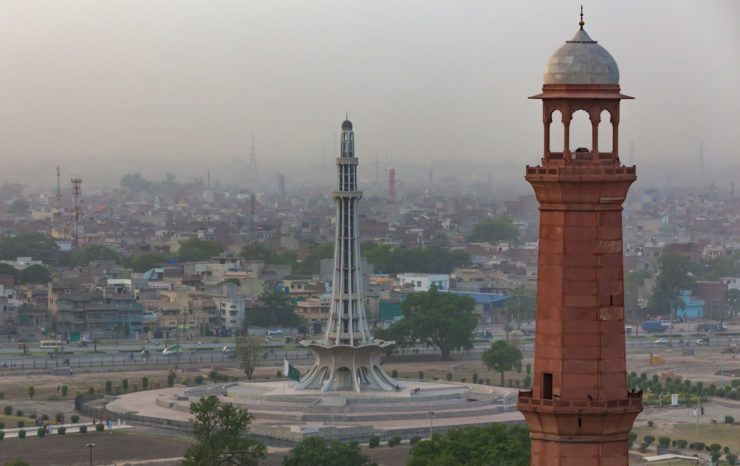
Pakistan’s political culture has never been truly democratic since the country’s inception. Democracy has been derailed numerous times by the state’s establishment of the country since its creation. The non-democratic forces controlling the Pakistani state have been using different politicians and political parties to achieve their ambitions. Allegedly, the incumbent Pakistani government is also supported by the deep state. The country’s establishment is allegedly using the Pakistan Muslim League Nawaz (PML-N) government as its pawn to suppress the largest political party of the country – Pakistan Tehreek E Insaf (PTI). This has sparked rage among the country’s population.
Political Turmoil and Controversy Surrounding Elections
Just like in the past, the incumbent Pakistani government is also blamed for being supported by the country’s establishment. Almost all the opposition parties have declared the 2024 general elections of the country to be unfair and rigged. Although PML-N succeeded in making a central government in the country, the party struggled to garner widespread support among the populace. The removal of Imran Khan through a no-confidence motion in 2022 further decreased the popularity of the PML-N among the masses.
Rise of Pakistan Democratic Movement and Political Unrest
The latter formed a coalition government with the support of some other political parties under the banner of the Pakistan Democratic Movement (PDM). The PDM government made tough decisions that infuriated the general public of the country. The ouster of Imran Khan and the formation of the PDM government was also blamed to be staged by the country’s establishment. Since the ouster of Imran Khan, the PTI has been protesting against the intervention of non-political forces in the democratic processes of the government.
On 9th May 2023, these protests turned violent after the arrest of Imran Khan. PTI workers vandalized 40 different military installments and public buildings. Reportedly, 62 incidents of violence were reported on 9th May. According to the State Bank of Pakistan, these incidents inflicted a total loss of 2.5 billion PKR. These violent protests led to a severe crackdown against the PTI workers and leadership. Many of the PTI workers are still under arrest. Imran Khan, the founder of the PTI, is also facing numerous charges and is incarcerated. During all this time, the PML-N government pretended to hold an inclusive policy towards all the opposition parties. However, the court decisions in favor of the PTI founder – Imran Khan, have perturbed the contemporary government.
Government Response and Threats of Political Bans
Recently, the Information Minister of Pakistan, Attaullah Tarar, in a press conference, announced that the federal government of Pakistan was mulling to ban the PTI, accusing the party of inciting violence in the country and leaking classified information. He stated, “The government has decided to ban PTI after reviewing all available evidence. We will move a case to ban the party.” The announcement of this decision drew condemnation from not only the pro-PTI people but also from the allies of the PML-N government. Different human rights groups and the United States have also criticized this decision.
Nonetheless, banning a political party is nothing new in Pakistan’s political culture. The country holds a long history of banning opposition parties. In 1954, the Communist Party of Pakistan was the first political party to be banned by the state over the charges of conspiring to overthrow the government. In 1971, banning the Awami League by the state resulted in the dismemberment of the Eastern wing of the country and the creation of Bangladesh. Bhutto’s government in 1975 banned the National Awami Party, accusing its leaders of killing PPP leaders. In 2020, Jeay Sindh Qaumi Mahaz-Aresar was also banned by the government.
The PTI government, which is currently facing the threats of ban by the incumbent government, also banned Tehreek-e-Labbaik Pakistan (TLP) in 2021 due to the latter’s protests against blasphemy and the illegal arrest of its leader Saad Hussain Rizvi. However, this ban was removed after the protest from the TLP workers and negotiations between the government and the party leadership. Unfortunately, the incumbent PML-N government is also following a similar political culture.
PTI is the largest political party in the country and has gained the largest number of seats in the parliament. This victory made the PML-N and its allies anxious. However, the lack of a party symbol made PTI ineligible for gaining reserved seats. PTI filed a case in the Supreme Court against the Election Commission of Pakistan’s decision to abstain the party from gaining the reserved seats. The Supreme Court of Pakistan decided in the favor of the PTI. This further strengthened PTI’s position in the parliament and threatened the stability of the incumbent government.
Allegedly, the PML-N government’s decision to ban PTI is motivated by its fear of being ousted through a no-confidence movement in the parliament. Moreover, certain observers are attributing this decision to the influence of non-democratic forces within the federal government. However, any such decision will further weaken the democracy in the country and strengthen the role of non-democratic forces in the government. Political polarization and instability will further increase as a result of this step. To avoid another crisis in the country and to ensure political and economic stability in Pakistan, a consensus and political dialogue among all the political stakeholders of the country is mandatory.
Abbas Hashemite – is a political observer and research analyst for regional and global geopolitical issues. He is currently working as an independent researcher and journalist, exclusively for “New Eastern Outlook”.
